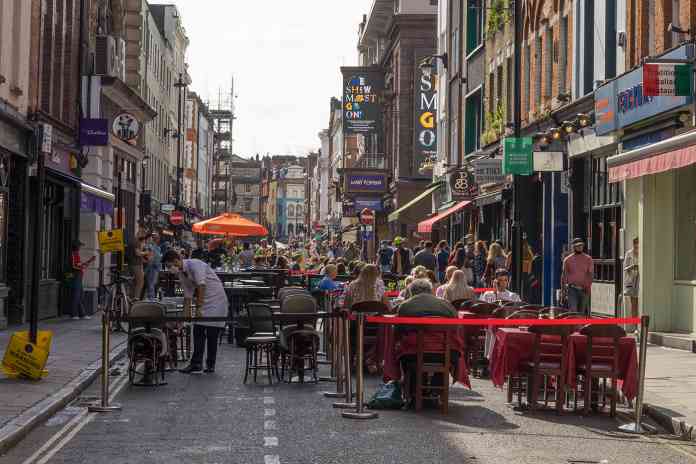
Protecting people as we reinvent the high street
Deborah Ainscough discusses the relaxation of planning requirements for pop up markets and hospitality businesses, along with the perimeter protection considerations involved
After so many aspects of our daily lives were compromised or put on hold for so long during the pandemic, this summer looks set to be the time we finally get back to normal. Holidays abroad are taking off again, music festivals happening in fields up and down the country and bars and restaurants are welcoming people back, kickstarting the night-time economy.
But the pandemic has brought lasting change far beyond the individual tragedies and public health impacts. Although some people have been excited to get back to the high street and enjoy shopping again, online shopping habits have become entrenched, leading to exponential growth in internet shopping and an accelerated decline for bricks and mortar retail.
For both national and local government, the high street retail landscape is a significant concern. Alongside the vacant properties caused by shop closures, a struggling retail sector also means reduced footfall for cafes, bars, restaurants and leisure outlets and quiet urban centres. The issue has led to a decision from the Department for Levelling Up, Housing and Communities to make temporary rules on the use of outdoor spaces into permanent legislation. Under new planning rules, markets can be held more often, and hospitality businesses can erect marquees on their own land without requiring planning permission, making it easier for both local authorities and the leisure sector to attract footfall into towns and cities.
But creating opportunities for economic activity and leisure comes with a responsibility to keep people safe. The consultation for the UK Protect Duty legislation has now been completed and, as we await the draft bill, it is clear that any private businesses and/ or events in the public realm classed as publicly accessible locations (PAL) are likely to have a legal duty to assess and address safety and security risks, with accountability for putting robust measures in place.
At Crowdguard, we are working with the hospitality sector, event organisers and local authorities to help them implement strategies that protect both the public and their own organisations against risk. To support PALs, we provide a detailed report that considers the threat, vulnerability, and risks (TVR) of the protected area, including a vehicle dynamic risk assessment (VDR). We can then suggest an appropriate specification of products and features and identify any residual security concerns.
Commercial opportunities
The success of Christmas markets and farmers markets was already building into a clear trend for lifestyle pop-up markets before the pandemic, where people could buy items direct from the maker. The drive to support local businesses, the rediscovery of the benefits of shopping local, and the potential for people create new businesses or adapt their existing companies during the pandemic have created huge potential to build on the appetite for artisan markets.
Markets offer an excellent opportunity to generate footfall that can provide a positive boost for bricks and mortar shops and hospitality businesses, but the challenge for local authorities is that markets present a potential security issue. Terror attacks on Christmas markets and the vulnerability of crowds in unprotected locations, many of which are not permanently pedestrianised, indicate a need to consider risk mitigation and public safety along with practical and aesthetic implications.
The pandemic has been a gamechanger for the whole concept of outdoor dining in the UK too. Once again, however, bringing people together in locations that were never originally intended as dining areas brings with it safety and security considerations, which must be addressed if hospitality venues are to keep people safe and guests are to dine in a relaxed, secure environment.
digital issue
















